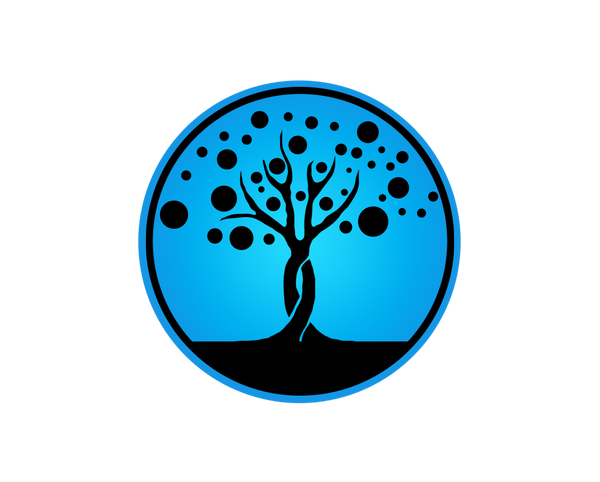Introductions
Share
First off, I’m a person of a fair amount of brevity and in the sake of brevity I’ll probably say some things that are ‘generally true’. Humanity encompasses a staggering breadth of diversity and I’m sure there are exceptions to nearly every assumption or generalization. Especially when I get into the research around the psychology of storytelling and fandoms. I am focused on the larger portion of people and trends.
I’ve come a long way since working on my first book in 2018. It all started as a hobby and I really didn’t know what I was doing. Before getting into writing, I was a chemist. I worked to design and redesign industrial processes to improve efficiency and remove errors.
Most everything I’ve learned have been through observations and nibbling on bits of knowledge here and there to learn how to write. Each thing is a tool in the toolbox, but first I thought I’d just do a little introduction as to who I am as an author.
In 2018 I worked to write my first book; it took 14 months to write a 65,000-word book. I had absolutely no idea what I was doing. After publishing it in December of 2019, I ended up in the red. In 2020, I published Legendary Rule 2 and Mana Master, yet I didn’t even net enough to need to declare my work on my taxes, but hey; I was in the black.
Mana Master started to pick up steam with books 2 and 3, and by May of 2021 I kicked the old job aside and went full steam into authoring, thinking I had found some silver bullet to make this all work. I then wrote two books that undersold the mana series with Dao 1 and going back to wrap up Legendary Rule with book 3. There was a brief period where I was dreading having to crawl back to my old job. Yet, I had saved everything from Mana 1-3 to protect my new step into publishing and pushed through.
Dragon’s Justice and the second trilogy of Mana got my feet back under me, but it wasn’t until Saving Supervillains that I really broke out and became what people see today as the staple of the HaremLit genre that releases in the top 100 on Amazon and has a strong following. It took me 3 books to start seeing success and over a dozen before I started to have what I consider to be a notable success not just in the Haremlit Genre, but in the writing world in general.
Along the way, I learned a few things. Truthfully, they are things that I’d read or heard and they’ve stuck. Some I may have reinterpreted for my own mindset, but you eventually learn as a writer that nothing is brand new. Even if you have the most incredible idea someone will walk up to you and tell you about a book that did something similar a year ago.
These are the tools I reach for when I stick my hand into my writing toolbox. I encourage everyone to learn and try all the tools out there make your own toolbox. They also make a convenient way to organize everything.
Before we get too deep into the tools in the toolbox, let’s talk quickly about what being a writer really is and how incredible of an achievement many people here are striving for or have accomplished.
Once upon a time, I was an athlete and I think my mentality there shaped a lot of how I view work and my career as a writer. There was a time in the 6th grade where I saw a kid on my soccer team rush the goalie and do a rainbow flick over his and the goalie’s shoulder for a goal. It was quite possibly the coolest thing I had ever seen playing soccer.
So, naturally, I had to learn how to do it too.
To be able to pull something like that off would be incredible. I have hit the back of my head an uncountable number of times with a soccer ball, not many of them gentle. Once I got it down, I learned that it only works against a goalie once.
So, I had to learn more tricks to vary things up.
Eventually, you start to learn about nutrition and playing sports becomes more than just the game, it becomes about conditioning, pre-game rituals, teamwork. Hell, you get into the professional spaces and it’s about maintaining the right psychology, cycling workouts and diets so that you hit game day at the perfect place in the absolute peak of your condition.
So, when becoming a New York Times author is statistically less likely than you becoming a professional athlete and publishing a single book is less likely than getting a sports scholarship to college, why the fuck wouldn’t we have our own giant set of things to improve and maintain?
If you’ve written a book, you are comparable in achievement to a college level athlete with a scholarship. If you make a living off of writing, you are a Division I athlete destined for a life as a professional. I wanted to draw these comparisons, because oftentimes, there is no big fanfare for these events, despite these being comparable level achievements. Admittedly, with a little less sweat.
Truth be told, to get here we’ve all practiced hard, flipping countless pages, letting our imagination run wild and finally putting our words down on the page. Which brings me to the first tool in the box, it is part of preparation and something we can all do no matter the level we are at as a writer. Reading.


2 comments
I just want to say thank you. I have been wanting to write for many years now and I have stared writing many books ever since I was a kid, but some how I always talk my self out of it or get down on myself about it, but here I am at 38 going to give it a real shot and your books and personal story have inspired that. So thank you again. I am looking forward to Returner’s Defiance 2.
Thank you, Bruce. I struggled with athletics in high school. But, joined the army and spent years strength training, running, kickboxing until I got formula for getting into kick-butt shape. When I finally got the balls to start writing (age 38), I got the planning, routine, self-discipline and most important, thick skin.
Here is an example of thick skin. One of my real life short stories beat out 5,000 entries to Chicken Soup for the Canadian Soul. The story made it on national radio and mentioned on a large radio station. Years later, without telling anyone about the publication, I read the story to a writer’s group. The group would not shut up on the story need improving. I just smiled and nodded. Critics are usually people without the balls to do the writing.